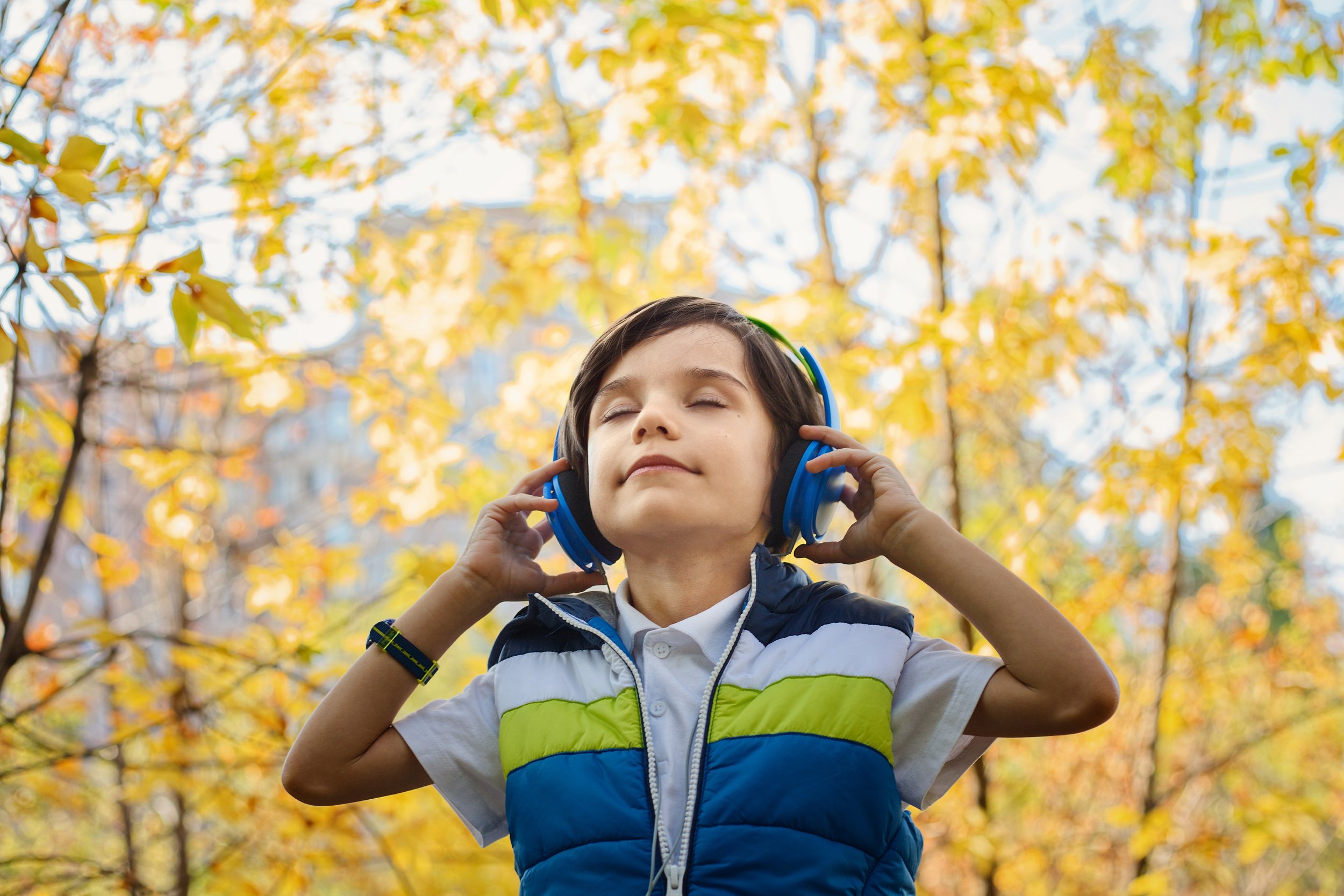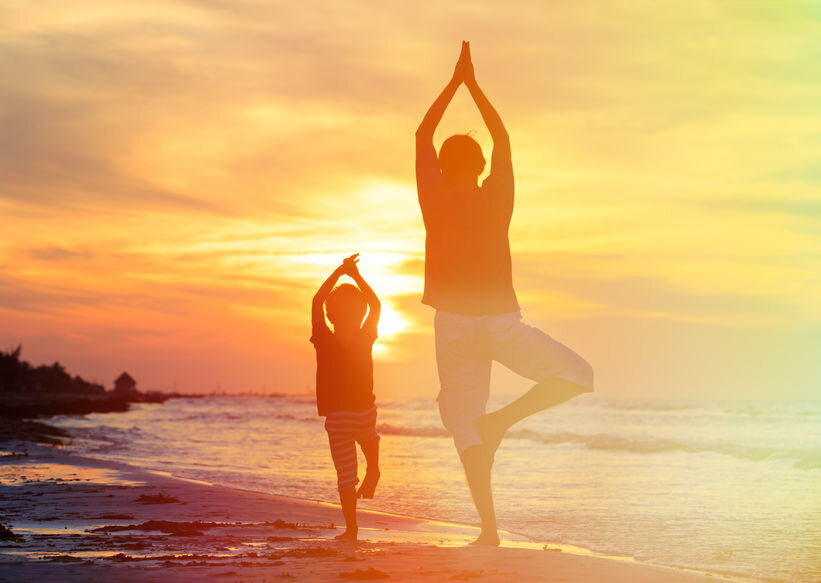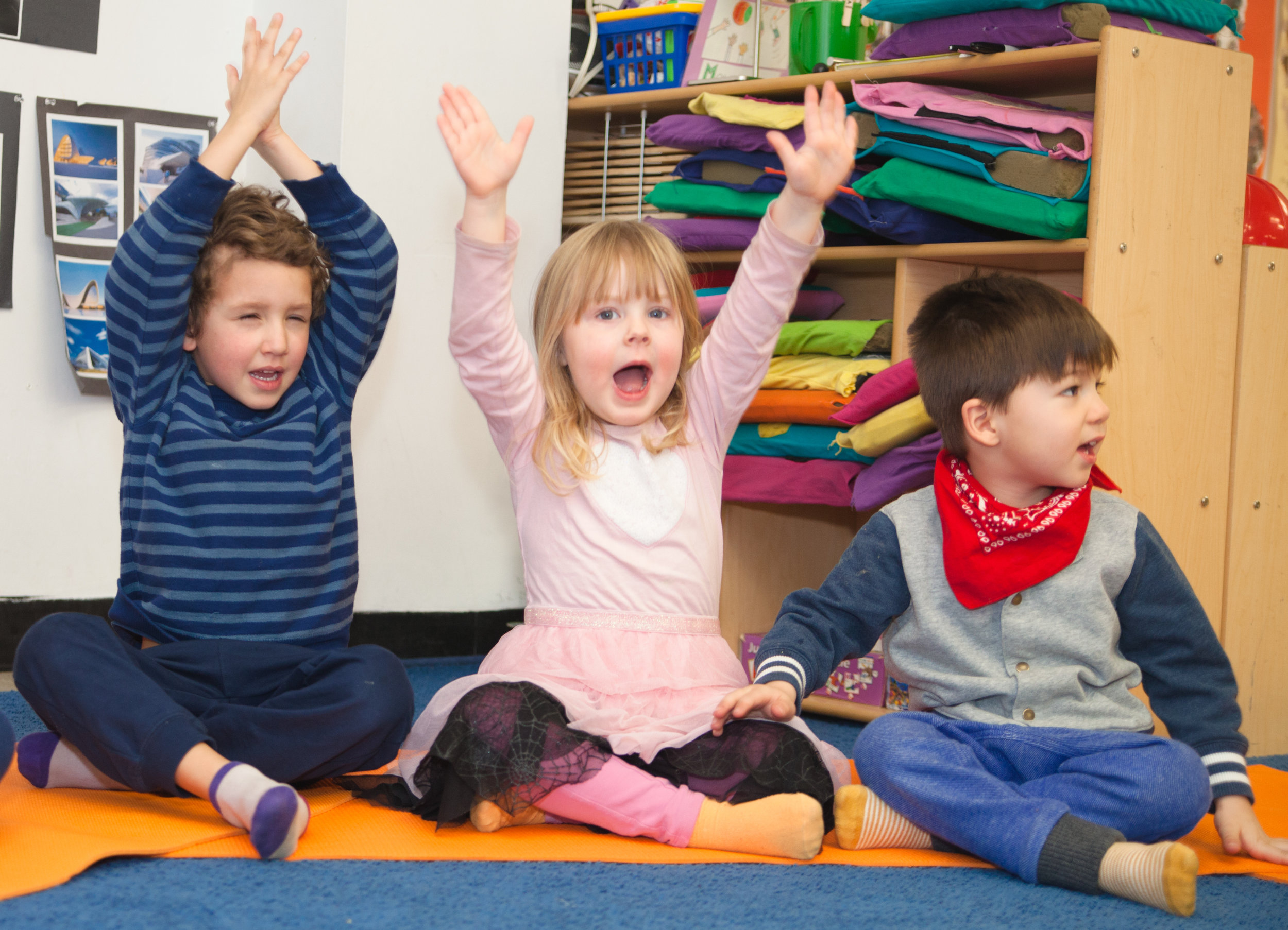Navigating Uncertainty: Our Top 7 Tips for Pandemic Parenting
“Shake your booty, shake your booty, shake your booty butt!”
It’s the end of yet another really long day and in a surge of post-dinner energy, my kids have decided for dessert they will strip off their clothes, leaving a trail of shorts, t-shirts, socks and a diaper in their wake and then run through the house dancing and singing their latest anthem to nakedness.
It’s cute and fun but it’s also bedtime…did I mention it’s been a really long day? I look at my kids, rolling around naked with the dog on the carpet, clearly exhausted but ignoring my requests for pj’s and think…this is why parents thank their lucky stars September’s around the corner and school will be starting soon!
Except this year it isn’t, at least not in the way we have come to expect. And this is after many of us have already had a six-month summer “vacation” with our kids, in lock-down, while working from home. It seems there is no light at the end of this tunnel, so what do we do?
As we battle a global pandemic, a more subtle ailment is also sweeping through our families and communities…increased stress and anxiety. The myriad of uncertainties about health, finances, job security and now the return to school have many of us walking around like human powder kegs about to explode.
“When we are no longer able to change a situation, we are challenged to change ourselves.”
Anxiety thrives on uncertainty. But unless we are medical scientists searching for a vaccine, there is not much we can control about the course of this pandemic other than our own response to it. Choosing how we want to show up in times of deep stress and unpredictability grows our resilience to handle whatever life throws our way.
Maybe this is a golden opportunity to decide how we want to meet inevitable life challenges and practice new skills and tools to help. Our children are watching us closely through all of this and will learn from our example.
While each family’s choices will be different and unique, these skills will help us make tough decisions from a place of strength and discernment.
Here are our top tips for parents who want to survive and thrive while navigating the unexpected.
1. Befriend Your Breath
Our breath is a bridge from the outer world to the inner world. You can tell a lot about how you’re feeling by how you’re breathing.
Is your breath shallow, in your chest, audible and irregular with rapid or loud exhales? It’s likely you are experiencing stress, which is activating your sympathetic nervous system in preparation to fight, run away or freeze.
Is your breath subtle and gentle, located more toward the torso and belly, regular with even inhales and exhales? You are likely in parasympathetic nervous system activation, sometimes called “rest and digest” mode because it’s the state in which all our systems (immune, digestive, circulatory, etc.) operate most effectively.
Our nervous system can shift tremendously from moment to moment. This human super-power is how our species has survived thousands of years. But those hard-wired reactions are outdated for today’s modern predators.
We can’t fight traffic jams or flight delays, can’t flee our money problems or systemic injustice. We certainly can’t freeze and “play dead” when we encounter a difficult exam question or realize we accidentally sent a very personal email to our boss.
Our breathing not only helps us diagnose the state of our nervous system, it is also the tool we can most effectively and quickly use to regulate it. Just a few minutes of conscious breathing practice can trigger a “relaxation response” which creates a cascade of positive physical, mental and emotional benefits.
Try This: Mindful Breathing
Take a moment to notice your breathing - is it fast, slow, steady, irregular, loud, soft, easy, restricted?
Shifting your attention will likely alter your breathing pattern at first. Take a few moments to settle and allow your breath to be natural as possible. Without trying to change it, simply notice the sensations and the quality of your breath. Don’t judge, just breathe.
Stay in noticing as long as you like. Then, if it feels comfortable, begin to match the length of the exhale to the the length of the inhale, allowing a brief pause and the top and bottom of each breath.
You might even count your breaths, saying in your mind as you inhale “One breathing in. I know I’m breathing in.” As you exhale “One breathing out. I know I’m breathing out.” If you lose count, just start over.
Practice for 3 minutes or more and then check in with how you are feeling.
If you notice your breathing is still mostly in the chest area or feels shallow, you might try lying down and placing your hands on your belly to direct the breath lower. You can even have your children join in with this fun breathing buddy practice.
2. Get Embodied
Stress is a mental problem that results in physical ailments. Throughout this pandemic, we have been receiving an overwhelming amount of information, conflicting data, news and opinions. Now in addition to all of that, parents and teachers are weighing several educational “options” - hybrid school, virtual school, home school, pod school and on and on.
The mind is like a hamster on a spinning wheel, returning again and again to the mull over unanswerable questions, replaying the past and projecting the future. It’s exhausting and we all just really need to get out of our heads.
The best way to do that is to get into our bodies. How can we possibly trust our gut if we are trapped in our head? Exercise, dance, yoga, hiking or even a walk around the block can bring our awareness into our bodies and promote a sense of wholeness and well-being.
Try This: Body Scan
Begin by lying on your back. Allow your legs to relax and your feet to fall apart. Release your shoulders and rest your arms by your sides, palms facing up. Close your eyes.
***If laying down is not comfortable, you can also practice this seated in a chair.Start with your feet. Bring your attention to your right foot, left foot and then both feet. Notice any sensations without judgement. If helpful, you can even visualize a warm, white light at each body part.
Move up to your legs. Right leg, left leg and then both legs.
Bring your attention to your hips, belly, torso, chest and shoulders. Pause at each part of the body, noticing any sensations.
Move your attention to your hands. Right hand, left hand and both hands.
Right arm, left arm and both arms.
Bring attention to the right side of the head, left side of the head and then the whole head.
Notice the right side of the body, the left side of the body and then both sides of the body.
Front of the body, back of the body, the whole body.
Notice the innermost middle of the body, the outer edges of the body and the whole body.
Stay for at least 5-10 minutes, noticing any sensations in the body, without judging or needing to change them.
Ask your body what it needs and open to intuition. If nothing comes right away, leave space for it to float to the surface later.
When you’re ready, make some small, gentle movements and open your eyes slowly.
Sometimes when we are stressed and our minds are in overdrive, it might be helpful to move before attempting stillness and relaxation. Try one of these brain breaks or a few rounds of the Hip Hop Sundance to relieve some anxious energy before relaxation.
3. Prioritize Play
When everything feels serious, it could be a great time to build your silly muscles. Nothing pulls me out of a worry-spiral quicker than tickle fights, blowing raspberries (called berzerbers at our house), goofy dance parties, knock-knock jokes and talking in funny voices.
Play provides a powerful emotional boost and also keeps our minds flexible and open to unconventional solutions. Having fun triggers the release of endorphins, the body's natural feel-good chemicals, promoting an overall sense of well-being.
We all know the importance of play in healthy child development. The benefits for adults are similar and include improving brain function, expanding creativity, preventing memory loss, decreasing depression and strengthening relationships with others.
Feeling stuck? Get out of your comfort zone and mix it up with this Cement Mixer song and movement sequence.
4. Surrender
I know, that word is tough. But at some point we have to admit there are things, many things, beyond our control. It doesn’t mean we shut down or give up. Instead, surrender means giving over. Relinquishing the illusory control and letting go. What’s left is deep faith…faith in ourselves and in those around us.
We all have innate negativity bias. Evolutionarily, those who were more attuned to danger and paid greater attention to bad things around them were more likely to survive. This tendency to dwell more on the negative than the positive is one way our brain tries to keep us safe. We overestimate the negative and underestimate the positive.
However, if we are constantly predicting and preparing for disaster, we never get to enjoy where we are. We have to decide what is an appropriate amount of worrying - are we actually problem solving or just needlessly and chronically shifting our nervous system into high-gear?
Letting go is our gateway into the present moment. From there, we can tune into ourselves, our intuition and do what feels right even when we don’t know how it will turn out.
Try This: Dragon Breathing
Sit cross legged or kneeling with your spine long
Breathe in through your nose
Breathe out through your mouth whispering a roar. Imagine letting go of any emotion that is not serving you - worry, anger, fear, anxiety…release it all on the exhale.
Option to stick out your tongue and open your eyes and mouth wide
Repeat 5-10 times and then sit quietly, breathing normally for a couple minutes.
5. Lean Into Love
What would it mean if we assumed everyone is doing the best they can? What would it mean if we assume we are doing the best we can?
It’s really important that we normalize and express our emotions rather than suppressing or hiding them away. Our ability to name and share how we are feeling will also support emotional intelligence and health of our kids.
We are living through an unprecedented time and all the feels are completely warranted. Our ability to shift our perspective must start with understanding and acceptance of where we are and how we are feeling.
If we get angry at ourselves for being emotional or feeling stressed, that only serves to add another layer of suffering overtop of the original hurt. A good rule of thumb is this…if you wouldn’t say something to your best friend or a small child, then you shouldn’t say it to yourself!
We can increase our capacity for empathy and self-compassion. These two feed off one another - we can only give others the amount of love we are able to give ourselves and vice versa.
However, we cannot access empathy when our nervous system is in survival mode. Just five minutes of daily loving kindness practice can regulate the nervous system and deepen our capacity for empathy and compassion.
6. Rest and Regulate
Have you ever noticed emotions feel stronger when you’re tired? Sometimes when things feel especially bleak, I remind myself that a shift in outlook might just be one good night’s sleep away.
We have a lot of cultural baggage around rest - it’s lazy, unproductive, selfish, or we don’t deserve to rest until we’ve accomplished this chore or that big project. We glorify burning the midnight oil, overworking and busyness and wear our exhaustion as a badge of honor.
Our sleep hygiene is so important to our health and is often the first thing that suffers in stressful times. Having a wind-down routine and a consistent bedtime is just as important for adults as it is for children.
Part of self-compassion is self-care which must include rest and relaxation. How might you soothe and appease your senses? Warm baths, candlelight, calming teas, delicious smells, hot showers and peaceful music don’t require a trip to the spa or even leaving your home.
When the mind is busy, guided imagery and musical elements can ease us into a deeper stillness. Invite the whole family to practice relaxation pose together with this guided musical meditation.
7. Cultivate Community
It’s hard right now. We are grieving many losses including the loss of community. Maybe we never realized how those small everyday interactions make us feel a part of something bigger than ourselves and connect us to each other and the world.
Seeing other parents at school drop-off and pick-up, stopping by a neighbor’s house for conversation, meeting up with a friend for coffee. These are things we might have taken for granted and now really miss.
While Zoom has its limitations, and we are all experiencing screen fatigue, we must continue to find ways to connect. We are social beings and perceived isolation has been associated with several negative health outcomes.
So call up a friend to watch a movie together, dust off the long lost art of letter writing, or invite your neighbor for a socially distant stroll. The benefits of connection are immeasurable and there is always a way to say Hello!
Even as I write this blog post, I acknowledge all the uncertainties my family and our business is facing. I am thankful to have these tools at my disposal and teaching them is a much needed reminder to use them myself.
We will continue to navigate this together, connected in community built on acceptance, compassion and love.
READ NEXT: More mindful resources
Save this article for later and don’t forget to download the Yo Re Mi app for children’s mindfulness and musical yoga videos.















